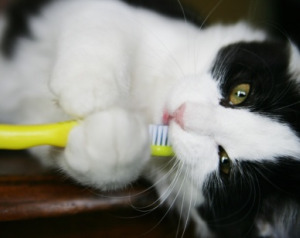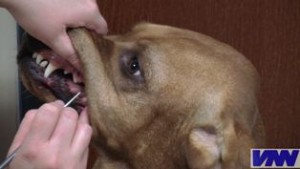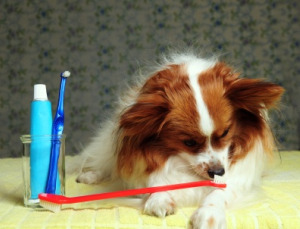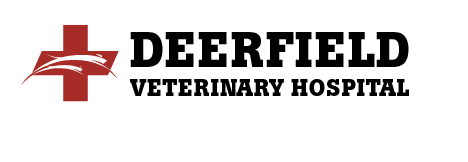Who Cleans Your Teeth?

Non-anesthetic dental scalings (NADS) or “anesthesia free pet dentals” involve removing tartar from an animal’s teeth by simply holding the pet and not using any sort of sedation or anesthetic. Many of the websites promoting this service tout their “proprietary restraint techniques” as the reason they are able to work in your pet’s mouth while he or she is awake.
Videos advocating this practice show well-behaved pets sitting quietly on the floor or on laps while individuals scrape their teeth with sharp dental instruments. Is this how it happens or is this simply marketing hype?
 Businesses that encourage these types of procedures claim that their methods are safer, healthier for the pet and less costly for the owner. However, understanding the risks of these supposedly safer options might offer an opposing view.
Businesses that encourage these types of procedures claim that their methods are safer, healthier for the pet and less costly for the owner. However, understanding the risks of these supposedly safer options might offer an opposing view.
First, these methods should not be called “pet dentistry”. Dentistry involves much more than a simple scaling of the teeth. In fact, the term dentistry is defined as the branch of medical science concerned with the diagnosis and treatment of diseases and disorders of the teeth and gums. The American Veterinary Dental College prefers the term “non-anesthetic dental scalings”, or NADS, as this more accurately describes these procedures. Individuals doing these scalings are rarely trained in dentistry.
Next, the marketing of these services focuses on the fact that the providers don’t use any sort of anesthetic or sedation. Several sites quote a single scientific article and claim that one out of every 253 pets dies from an anesthetic procedure. For people who have lost pets under anesthesia, these services seem heavenly and for others, it simply scares them.
What they DON’T tell you is that particular study was done at a veterinary teaching hospital where the vast majority of their surgical patients were severely ill or injured. Other studies show a much lower risk of anesthetic related deaths.
To be fair, anesthesia, like any medical practice, has risks. But, your veterinarian has the appropriate knowledge, skills, equipment and trained staff to help minimize adverse reactions.
Proponents of NADS also claim that it is healthier for the pet since the pet doesn’t need to undergo multiple anesthetic events. Again, this fiction is not borne out in reality as the vast majority of pets only need professional teeth cleanings once or twice annually.
 Perhaps the biggest myth perpetrated by these unlicensed people is that a dental scaling will promote long term oral health for your pet. Dr. Brett Beckman, a veterinary dentist, has seen the effects of NADS on pets over time. He says, “these ‘cleanings’ actually do much more harm than good. The pitting of the enamel by the scalers allows for more hiding places for the plaque causing bacteria.” The American Animal Hospital Association (AAHA) agrees. In a statement on their website, AAHA says that these scalings “make the teeth whiter, but not healthier!”
Perhaps the biggest myth perpetrated by these unlicensed people is that a dental scaling will promote long term oral health for your pet. Dr. Brett Beckman, a veterinary dentist, has seen the effects of NADS on pets over time. He says, “these ‘cleanings’ actually do much more harm than good. The pitting of the enamel by the scalers allows for more hiding places for the plaque causing bacteria.” The American Animal Hospital Association (AAHA) agrees. In a statement on their website, AAHA says that these scalings “make the teeth whiter, but not healthier!”
Even the aspect of saving money that is highly publicized may not be accurate. A search of pricing showed a range between $125 and a $165 for these procedures. While this might be less expensive than the veterinarian, these companies and individuals are recommending that their clients return, on average, once every three months. That’s $500 to more than $650 per year! Dr. Beckman elaborates that “the damage done by the scaling encourages plaque growth and then, of course, return visits. This might be good for business, but it’s certainly not good for the pet.”
Remember, many of the people who encourage and provide these sorts of services are unlicensed, often unsupervised and unregulated. This means that you have no official recourse if your pet is injured during the scaling. Cuts of the gums, neck strains and even long term anxiety have been reported.
If you are concerned about your pet’s dental health, the best resource for you is your veterinarian. He or she will have the right equipment to fully assess the whole mouth, not just the outer surfaces of the teeth. With dental x-rays and effective dental probing done on an anesthetized pet, your veterinarian can get the entire picture of the health of your pet’s mouth.
Ask questions if you are concerned about anesthetic safety. Other options for sedation may exist, based on the overall health of your animal. You should also proactively brush your pet’s teeth or ask about home care products that help minimize plaque accumulation.


